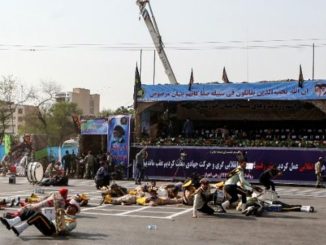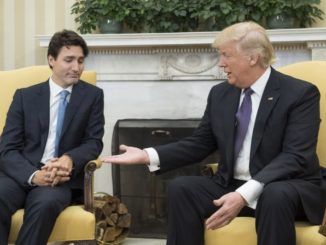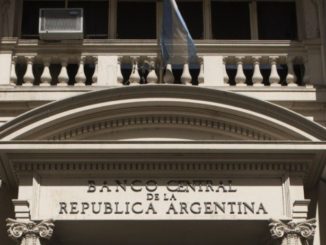JERUSALEM/CARACAS – Hundreds of Jews in Venezuela are fleeing the Latin American country amid the rising violence and food shortage under the rule of President Nicolas Maduro.
Venezuela once had one of the largest Jewish communities in the region, numbering some 25,000 in 1999, but now only about 9,000 Jews are believed to remain in the country.
Israel has been working behind the scenes in order to bring as many of those remaining as possible to Jewish state, according to local Channel 2.
Speaking at their new apartment in Jerusalem, Estella and Haim Sadna, a couple with four kids from the Venezuelan capital Caracas, described the food scarcity and rampant crime that drove them to move the Jewish state.
“Most of the supermarkets are empty. Everything is empty. You can see that all the aisles are completely empty,” Haim Sadna told Channel 2 in an interview aired Saturday.

His wife Estella complained of the difficulty in Venezuela of buying basic products such as milk for her kids, adding that “since Passover we haven’t had bread.”
“We lived in a beautiful home with seven rooms. But we left everything behind. We left the house, we left the furniture, the cars. Everything remained [there],” the couple said. “We brought the clothes that we use. That is what we brought, clothes and shoes.”
The family also noted the collapse of public services in the country such as healthcare, as well the sky-high crime rates, with Venezuela having some of the world’s worst murder statistics.
“The crime situation is [so bad] that it is scary to go out to the street. I only go out of it is essential and that is it,” Estella said. “At five p.m. we would run home.”
While most of the Jews leaving Venezuela would flee to Mexico, Panama or Miami, an increasing number of have been coming to Israel. Last month, a batch of 26 Jews arrived in the Jewish state from Venezuela.
A number of Jews have also joined the protesters demonstrating against Maduro’s rule.
Alex Cohen, who said he joined the protests in Caracas four months ago, told Channel 2 that the goal of the demonstrators is “the return of Venezuela to the people.”
“In Venezuela there is a dictator and Venezuela is held as a hostage by ten people,” he said, while calling on the international community to come to the assistance of the demonstrators.

Despite once being one of the wealthiest nations in South America, with the world’s largest proven oil reserves, the Venezuelan economy has collapsed as a result of the economic mismanagement beginning under the late president Hugo Chavez.
The economic situation has further deteriorated since Chavez’s death in 2013 and the rise to power of his hand-picked successor Maduro, a former bus driver, with inflation hitting some 800 percent and ever growing shortages of basic foodstuffs, toilet paper and medicine.
Last month, Venezuela held elections for a new constitutional assembly that supersedes the parliament’s authorities. The U.S. and a number of other Western and Latin American have refused to recognize the results, citing fraud and other irregularities.
The U.S. slapped sanctions on Maduro following the vote and on Friday US President Donald Trump said he was weighing a military response to the “very dangerous mess” in Venezuela.



